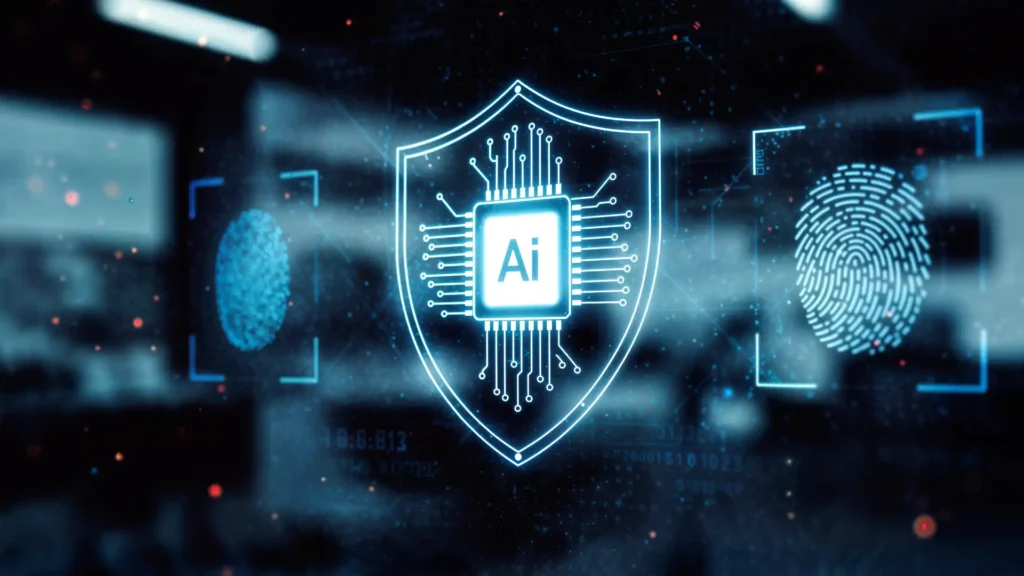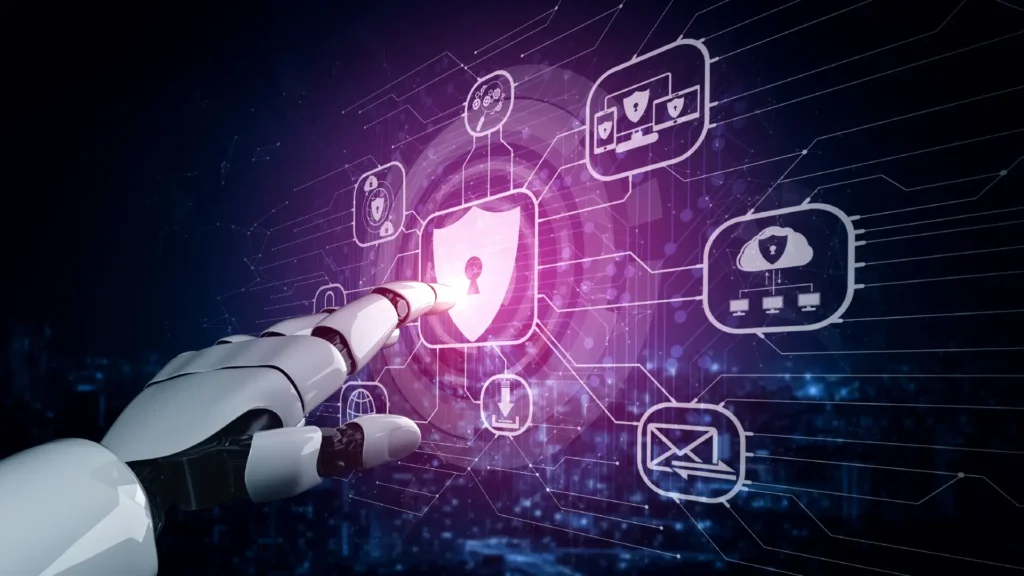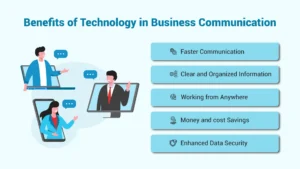When someone asks, “Will cybersecurity be replaced by AI?”, what do they really mean? Are they talking about job losses, automated tools, or the complete outsourcing of cybersecurity functions to machines?
To start, let’s define the basics. Automated cybersecurity refers to systems powered by artificial intelligence that can perform tasks like threat detection, vulnerability scanning, and alert triage, sometimes even incident response, without human input. And when people say “replaced,” they usually mean AI taking over the responsibilities traditionally handled by cybersecurity professionals.
Artificial intelligence is already deeply embedded in security operations, scanning for risks and flagging suspicious activity. But the bigger question is: does that mean humans are becoming obsolete in this space?
Well, it’s not that simple. Let’s break it down.
Key Summary of this Article
- AI is transforming cybersecurity, automating tasks like threat detection, vulnerability scanning, and alert triage.
- Humans remain essential for critical thinking, ethical decisions, and contextual understanding that AI lacks.
- AI enhances, not replaces: cybersecurity roles — improving efficiency and reducing manual workload.
- Collaboration is the future: AI handles data and speed, while humans provide insight and strategy.
- New hybrid roles are emerging, such as AI Security Analyst and Cyber-AI Strategist.
- Key future skills include AI literacy, ethics, advanced technical expertise, and strong communication.
- By 2030: entry-level tasks may be automated, but demand for skilled professionals will stay strong.
- AI will reshape cybersecurity — not replace it — creating smarter, more strategic careers.

How AI Is Already Transforming Cybersecurity
We’re well past the point of AI being a futuristic add‑on to cybersecurity, it’s already reshaping how modern security teams operate, often behind the scenes.
Let’s start with the obvious: automating repetitive tasks. Security professionals have long faced overwhelming volumes of data, endless logs, noisy alerts, repeated vulnerability scans. AI systems now take on much of this grunt work.
They scan for vulnerabilities, identify anomalies, and prioritize threats in real time. What once took hours can now happen in seconds, reducing manual fatigue and allowing teams to focus on real threats.
Then there’s the shift from reactive to predictive threat detection. With machine learning, systems don’t just flag known attack patterns; they learn from behavior. AI can recognize subtle changes, unusual logins, abnormal data transfers, that might signal an emerging threat. This means organizations can act before damage is done, not after.
Another big win? Supporting SOC teams. Security Operations Centers are often on the front lines, and analyst burnout is real. AI tools can now assist by filtering noise, highlighting genuine risks, and even suggesting appropriate responses. This turns a reactive, overloaded environment into one that’s more strategic and manageable.
So, is AI replacing cybersecurity professionals? Not quite. But it is making their jobs smarter, faster, and, arguably, more focused on high‑impact decision-making. AI in cybersecurity is no longer a luxury; it’s fast becoming a necessity. Still, it’s a tool, not the entire toolbox.
Why AI Won’t Fully Replace Cybersecurity Jobs
There’s a lot of fear around AI replacing tech jobs, especially in cybersecurity. But let’s look at what AI can’t do, or at least, can’t do well.
- Lack of critical thinking: AI excels at pattern recognition but lacks intuition. It can flag suspicious activity but can’t always determine the “why” behind it. Human analysts, with their contextual understanding, are still irreplaceable here.
- Ethical and contextual decision-making: Consider an employee’s device going missing. Should the device be wiped remotely? What data is at risk? Who needs to be informed? AI might suggest wiping, but a human must consider company policy, legal obligations, and even interpersonal dynamics. (Speaking of which, if this ever happens to your team, this guide is worth a read: Lost Employee Smartphone? Do This Now!
- Over-reliance risk: Blindly trusting AI leads to blind spots. Systems can be manipulated, poisoned, or trained on biased data. Human oversight remains essential, not just as backup, but as the primary safeguard against overconfidence in tech.
- Communication and trust: Some incidents require delicate handling. Informing stakeholders, managing PR, navigating regulatory fallout, these aren’t tasks you want handled by an algorithm.
So yes, AI is powerful. But it lacks human creativity, empathy, and judgment. And those aren’t optional qualities when you’re defending against unpredictable human attackers.

Human + AI Collaboration: The Real Future
Instead of asking whether AI will replace cybersecurity, maybe the better question is: How can humans and AI work better together?
The real future lies in human + AI collaboration, a model that’s already becoming the standard across leading security teams.
Think of AI as a force multiplier. It’s incredibly efficient at crunching massive volumes of data, identifying patterns, and spotting potential threats at scale. But it still needs human input to make meaningful decisions. AI doesn’t understand context. It can flag suspicious behavior, but only a trained analyst can determine whether it’s a real threat or just a weird fluke.
Hybrid workflows are already the norm in many organizations. AI tools handle the initial layers of threat detection, sorting through logs, scanning for vulnerabilities, and raising red flags. Then human analysts step in, evaluating the threat, responding appropriately, and adjusting security protocols as needed. It’s a partnership, not a handoff.
This collaboration is also creating new job opportunities. Roles like AI Security Analyst, Prompt Engineer, and AI Cyber Strategist are becoming more common. These roles sit at the intersection of cybersecurity and AI, requiring professionals who understand both machine learning tools and how to apply them securely in real-world scenarios.
Then there’s the bigger picture, strategic defenses. AI can help forecast where attacks might come from next, recommend mitigation steps, and simulate different scenarios. But decisions about risk tolerance, privacy trade-offs, or ethical boundaries still rely on human judgment.
So, no, it’s not about humans versus AI. It’s about the two working together, each doing what they do best. AI provides speed and scale; humans provide insight, oversight, and strategy. That’s the real future of cybersecurity, and it’s already happening.
What Skills Do Cybersecurity Professionals Need In 2025?
To stay relevant in an industry that’s evolving at breakneck speed, cybersecurity professionals need to evolve right along with it. The AI impact on jobs is already here, and while it may feel threatening at times, it’s less about elimination and more about transformation.
So, what skills will matter most in 2025 and beyond?
AI fluency is becoming essential. You don’t need to build neural networks from scratch, but you do need to understand how machine learning models operate, how they make decisions, and where their limitations lie. That foundational knowledge helps you assess whether an AI-powered tool is reliable, or dangerously flawed.
Critical thinking and ethics are equally vital. AI doesn’t understand nuance. It follows patterns, not principles. That’s where humans step in. Especially in high-stakes environments like healthcare, defense, or finance, professionals must evaluate AI-generated outputs within an ethical and strategic framework.
Advanced technical skills remain in high demand, particularly those that are hard to automate. Penetration testing, red teaming, secure architecture design, incident response, and cloud security engineering all require creativity, improvisation, and domain expertise that machines just don’t have.
When it comes to certifications and training, traditional paths like CISSP, CEH, or OSCP still hold weight. But as AI becomes more embedded in tools and workflows, new certifications that cover AI security or machine learning in cybersecurity are emerging. If you’re building a roadmap, this guide is a great place to start: 10 Key Steps on How to Secure a Network.
And finally, soft skills. Yes, really. Communication, adaptability, problem-solving, and the ability to explain complex ideas in simple terms. These aren’t just “nice to have”, they’re what often make the difference between a competent cybersecurity pro and a truly impactful one.
In the end, the most important cybersecurity skill in 2025? The ability to keep learning.

Future Outlook: Will AI Replace Cybersecurity Jobs by 2030?
So, let’s look ahead. The pace of change is rapid, and by 2030, cybersecurity will look noticeably different, but not unrecognizable.
First, expect a reduction in entry-level roles, especially in Security Operations Centers (SOCs). These teams typically handle a high volume of alerts and repetitive monitoring, tasks that AI is already automating with impressive speed and accuracy. Junior analysts who once triaged alerts may find that part of their job either reduced or completely redefined.
But this shift doesn’t equal widespread job loss. Instead, we’re seeing the rise of AI-augmented roles, positions that blend cybersecurity knowledge with AI oversight. Professionals who can manage, fine-tune, and interpret AI tools will be in demand. These aren’t just technical roles; they also require ethical judgment, business insight, and an ability to navigate complex risk landscapes.
Importantly, the cybersecurity job market is still booming. Organizations face a severe talent shortage, especially as cyber threats become more sophisticated and frequent. Those who understand both AI and security will be uniquely positioned to fill this growing gap.
We’ll also see the emergence of new hybrid career paths. Titles like AI Threat Hunter, Cyber-AI Strategist, and ML Security Analyst may become the norm, not the exception. These roles will require professionals who are fluent in both machine learning concepts and the nuances of cyber defense.
So, will cybersecurity be replaced by AI? In a word, no. But will it be transformed, reshaped, and redefined by AI? Absolutely. The future belongs to those ready to evolve with it.
Frequently Asked Questions
Can AI replace cybersecurity?
Is AI a threat to cybersecurity jobs?
Will cybersecurity still be in demand in 5 years?
Which pays more: cybersecurity or AI careers?
How can I future‑proof my cybersecurity career?
Conclusion
So, will cybersecurity be replaced by AI?
Probably not. The more realistic outcome is transformation, not elimination. AI will continue to reshape the landscape, automating repetitive tasks, accelerating threat detection, and supporting faster decision-making. But it won’t replace the need for human insight, ethical judgment, or strategic thinking.
What we’re seeing isn’t the end of cybersecurity jobs, but the evolution of them. The roles are shifting. Some traditional tasks may disappear, especially those that are routine and data-heavy. At the same time, new roles are emerging, ones that require both cybersecurity knowledge and AI fluency.
Professionals who can adapt, who can speak both the language of technology and the language of strategy, will lead this next chapter. Whether you’re already in cybersecurity or just entering the field, the key to staying relevant is continuous learning and a willingness to evolve alongside the tools you use.
In the end, artificial intelligence will absolutely change cybersecurity, but it won’t erase it. The question isn’t will cybersecurity be replaced by AI, but rather, how will humans and AI shape the future of security together?
And those who lean into that collaboration? They’ll be the ones defining the future of the field.
Author
-

Jay S. Allen, MCP, MCSA, MCSE, MCSE+ Security, is an experienced IT professional with more than 20 years in the industry. He specializes in delivering enterprise-level cybersecurity and IT support solutions tailored to small and mid-sized businesses. Through Techno Advantage, Jay is dedicated to helping organizations strengthen their security posture and achieve greater efficiency through smart, scalable technology solutions.










